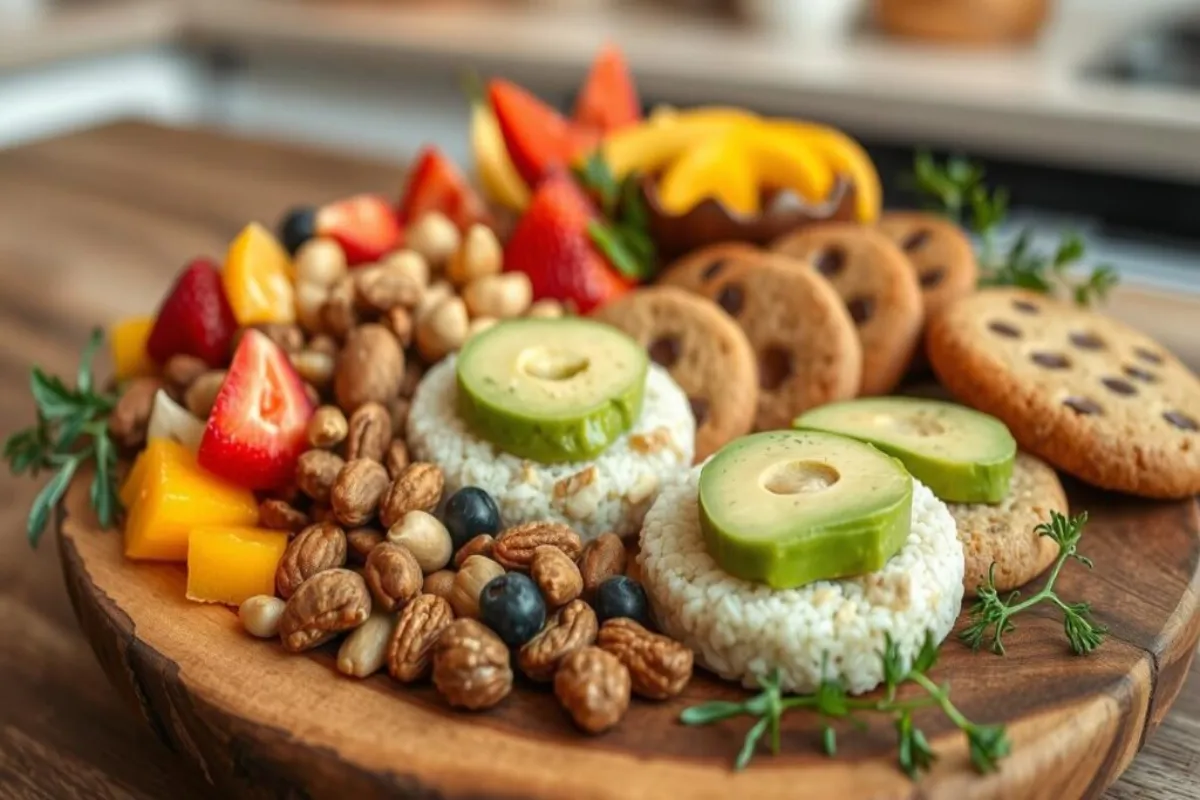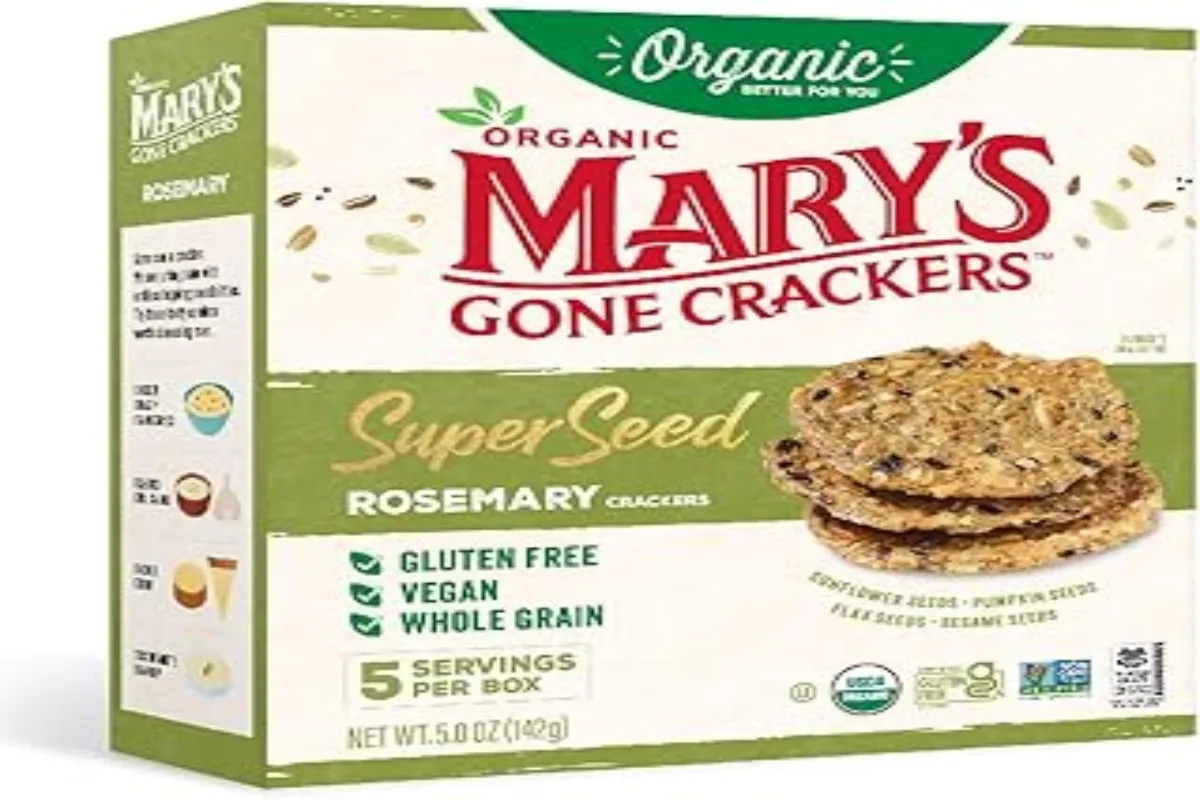For those with gluten intolerance or celiac disease, finding snacks can be tough. Ritz crackers are a favorite, but are they gluten-free? I’ll look into Ritz’s gluten content, explain why labels matter, and suggest gluten-free alternatives.
Gluten intolerance and celiac disease are more common now. People with these conditions look for gluten-free snacks. Ritz crackers, a favorite in many homes, contain wheat flour. This makes them a concern for those on a gluten-free diet.
Exploring the Gluten Content in Ritz Crackers
Let’s take a closer look at Ritz crackers and their gluten content. Gluten is a protein in wheat, rye, and barley. It can be a big problem for people with gluten intolerance or celiac disease.
Understanding Gluten Intolerance and Celiac Disease
Gluten intolerance, or non-celiac gluten sensitivity, makes people feel sick after eating gluten. Symptoms include bloating, stomach pain, and digestive problems. Celiac disease is an autoimmune disorder that damages the small intestine when gluten is eaten.
People with these conditions must check food labels carefully. They need to avoid gluten to stay healthy.
The Importance of Reading Ingredient Labels
For snacks like Ritz crackers, reading labels is key. Wheat flour, a main ingredient, contains gluten. This makes Ritz crackers not safe for those with gluten issues.
Looking at the ingredients list helps people choose safe foods. This is very important for those following a gluten-free diet.
“Carefully reading ingredient labels is the first step in ensuring your snacks are safe and suitable for your dietary needs.”
Knowing about gluten in Ritz crackers and health issues related to it is important. Being aware of ingredients helps people make better snack choices. This way, they can find foods that fit their dietary needs.
Is Ritz gluten-free?
Following a gluten-free diet means I always check snack ingredients. Ritz crackers are a favorite, but I wondered if they’re gluten-free. With more people talking about gluten sensitivity and Celiac disease, I had to find out.
Ritz crackers mainly have wheat flour in them. Wheat flour has gluten. This means Ritz crackers aren’t gluten-free. People with gluten sensitivity or Celiac disease should stay away from them.
But, Mondelez International, the maker of Ritz, has a gluten-free version. These crackers use rice flour instead of wheat. So, they’re okay for those on a gluten-free diet. This shows that gluten-free snacks can be just as tasty as regular ones.
“Gluten-free snacks can be just as delicious and satisfying as their traditional counterparts, and Ritz crackers are a perfect example of this.”
In short, regular Ritz crackers aren’t gluten-free because of the wheat flour. But, there’s a gluten-free version for those with dietary needs. Always check labels and choose wisely, especially if you have specific dietary requirements.

The Role of Wheat Flour in Ritz Crackers
As someone who loves gluten-free foods, I’ve wondered about wheat flour in Ritz crackers. Looking at the ingredients helps us understand its role better.
Decoding the Ingredients in Ritz Crackers
The first thing on the Ritz cracker label is unbleached enriched flour. This shows wheat flour is the main ingredient. It’s what gives these crackers their texture and taste.
Wheat flour has a lot of gluten, a protein that makes baked goods chewy. For those on a gluten-free diet or sensitive to gluten, Ritz crackers might be a problem.
Let’s explore the other ingredients in Ritz crackers:
- Unbleached enriched flour (wheat flour)
- Soybean oil
- Salt
- Leavening (baking soda, calcium phosphate)
- High fructose corn syrup
- Dextrose
- Nonfat milk
Looking at the ingredients, it’s clear Ritz crackers aren’t gluten-free. Wheat flour, the main ingredient, contains gluten. This is important for those who need to avoid gluten to make smart snack choices.
For those on a gluten-free diet, the snack aisle can seem overwhelming. Finding gluten-free snacks that taste good and are healthy is a challenge. Here, I’ll share tips to help you make smart choices and enjoy healthy snacking, even with dietary limits.
When looking for gluten-free snacks, always check the labels. Look for snacks labeled as “gluten-free” or those without wheat, barley, rye, and other gluten grains. Stay away from products with flour, malt, or unclear terms that might mean gluten is present.
| Gluten-Free Snack Options | Nutritional Benefits |
|---|---|
| Nuts and seeds | High in protein, healthy fats, and fiber |
| Fresh fruits and vegetables | Rich in vitamins, minerals, and antioxidants |
| Popcorn (air-popped) | Whole grain, high in fiber, and low in calories |
| Gluten-free crackers and chips | Made from alternative flours like rice, corn, or quinoa |
Choosing gluten-free snacks that are also nutritious can curb cravings and keep your diet balanced. The snack aisle might need more focus, but with the right knowledge, you can find tasty, healthy options that fit your diet.
“The key to a successful gluten-free diet is being prepared and mindful of the choices you make, even when it comes to snacking.”
Gluten Sensitivity and Its Effects
Dealing with gluten sensitivity can be tough, but knowing its health impact is key. Gluten sensitivity, or non-celiac gluten sensitivity, happens when people react badly to gluten. Gluten is in wheat, barley, and rye.
It’s different from celiac disease, which is an autoimmune issue. But gluten sensitivity can still mess up your day. Symptoms include bloating, stomach pain, diarrhea, tiredness, and headaches. How bad these symptoms are can vary a lot, so getting help from doctors is important.
Not treating gluten sensitivity can lead to serious problems. It can cause inflammation, lack of nutrients, and raise the risk of other health issues. This includes gluten intolerance and celiac disease. Also, people with gluten sensitivity might be more likely to get autoimmune diseases.
“Recognizing and managing gluten sensitivity is crucial for maintaining optimal health and well-being. By being proactive and working closely with healthcare professionals, individuals can take control of their condition and live a fulfilling, gluten-free life.”
If you’re new to gluten sensitivity or have been dealing with it for a while, managing it is a journey. By staying informed, pushing for your health, and trying many gluten-free foods, you can face the challenges. And you can enjoy the benefits of a gluten-free lifestyle.
| Symptom | Description |
|---|---|
| Bloating | Feeling of fullness or tightness in the abdomen |
| Abdominal Pain | Discomfort or cramps in the stomach area |
| Diarrhea | Frequent, watery, or loose bowel movements |
| Fatigue | Persistent feelings of tiredness and lack of energy |
| Headaches | Recurring or persistent headaches |
Snack Alternatives for the Gluten-Free Lifestyle
Finding snacks in the store can be hard for those who can’t eat gluten. But, there are now many gluten-free snacks available. You can find everything from veggie chips to nut bars that are both tasty and healthy.
Homemade Gluten-Free Crackers: A Delicious Option
Making homemade gluten-free crackers is a great choice. It lets you pick what goes into your snacks. Plus, you can make them taste just how you like.
Want something savory, cheesy, or sweet? You can make it all. Try using different nuts, seeds, and herbs to find your favorite flavor. Making these crackers is a fun way to enjoy the gluten-free lifestyle.
“Homemade gluten-free crackers are a game-changer for those seeking a truly customizable snacking experience.”
By making your own gluten-free snacks, you know what you’re eating. You get to use good ingredients and enjoy something crunchy and tasty. It’s a fun way to explore new flavors and enjoy gluten-free snacking.
Healthy Snacking: Balancing Taste and Nutrition
Following a gluten-free lifestyle means finding snacks that taste great and are good for you. It’s not hard to find gluten-free foods that are both tasty and nutritious. I’ll share tips on finding gluten-free snacks that are both delicious and healthy.
Choosing snacks that are full of nutrients is key. Gluten-free snacks made from whole foods offer vitamins, minerals, and fiber. Adding gluten-free fruits, veggies, nuts, seeds, and legumes to your snacks can keep you full and energized.
It’s also important to read gluten-free labels carefully. Some snacks labeled as gluten-free may still have gluten or other unhealthy additives. By checking the ingredients, you can pick snacks that fit your diet well.
Try making your own gluten-free snacks like crackers or baked goods. This way, you avoid gluten and can use healthy flours like almond or coconut. Plus, you can make them taste however you like.
| Gluten-Free Snack | Nutritional Benefits |
|---|---|
| Roasted Chickpeas | High in protein, fiber, and complex carbohydrates |
| Chia Seed Pudding | Rich in omega-3 fatty acids, fiber, and antioxidants |
| Quinoa Crackers | Provides a complete protein, fiber, and essential minerals |
Embracing a gluten-free lifestyle and choosing healthy snacks can nourish your body. It’s all about finding the right balance between taste and nutrition. So, don’t be afraid to try new things and find the gluten-free snacks that make you happy and healthy.
The Rise of Gluten-Free Options in the Market
The need for gluten-free snacks has grown a lot in recent years. This shows more people are aware of and following gluten-free lifestyles and gluten-free diets. The market has responded with many tasty gluten-free snack options. These snacks are perfect for those with gluten sensitivities or celiac disease.
There’s been a big change in the gluten-free snack world. Now, we have high-quality, tasty snacks that are just as good as the old ones. You can find everything from crunchy crackers to rich baked goods without gluten. These snacks are not only delicious but also healthy and filling for those on a gluten-free diet.
Big brands have noticed the growing interest and added no gluten snack options to their lines. This makes it easier for those on a no gluten lifestyle to find yummy snacks that fit their diet. As the market keeps growing, I’m looking forward to seeing even more variety in no gluten snacks. This will help more people enjoy a no gluten diet without giving up on taste or fun.
FAQ
As you explore the world of gluten-free eating, you may have more questions about Ritz Crackers. Here are some common inquiries:
1. Are there any no gluten Ritz options?
Currently, there are no official gluten-free varieties of Ritz Crackers available in stores. Always check the latest product announcements for any new offerings.
2. What should I do if I accidentally eat a Ritz cracker?
If you have celiac disease and accidentally consume a Ritz cracker, monitor for any symptoms. It’s best to consult with a healthcare professional if severe symptoms occur.
3. Are all flavors of Ritz crackers free of gluten?
Yes, all varieties of Ritz Crackers, including cheese, sour cream & onion, and others, contain wheat flour and are not safe for gluten-sensitive individuals.
4. Can I substitute Ritz in recipes with gluten-free options?
Yes, many gluten-free crackers can be used as substitutes in recipes that call for Ritz Crackers. Brands like Good Thins or Breton are popular alternatives.
5. Can I make my own no gluten Ritz crackers?
Absolutely! There are various recipes available online for making homemade gluten-free crackers that can mimic the taste and texture of Ritz.

